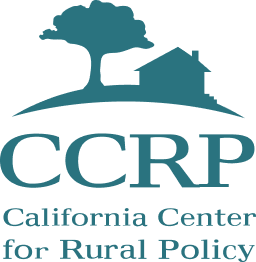The COVID-19 pandemic exacerbated local public health workforce challenges that have persisted over the past two decades. Supplying our governmental public health workforce with sufficient and consistent support is crucial for the health and well-being of our communities. Learn more about efforts to support the public health workforce by exploring the resources below.
Resource Title & Link | Resource Type | Resource Description |
Public Health Workforce Interests and Needs Survey (PHWINS) (de Beaumont Foundation, 2024) | Webpage | PH WINS is the only nationally representative source of data about the governmental public health workforce. They measure demographics of public health workers, as well as the strengths and weaknesses of the public health infrastructure. This webpage has links ot their findings from each of the three years it was conducted. |
National Consortium For Public Health Workforce Development (de Beaumont Foundation, n.d.) | Webpage | Over 30 national public health membership associations, federal agencies, and public health workforce peer networks got together to strengthen and improve the support for the governmental public health workforce across the federal, state, and local lines. This webpage has lists of resources that this consortium produced. Resources include reports on pathway programs, required skills for the public health workforce, and emerging ideas around recruitment for state and local health departments. |
Workforce Development Resources and Tools (PHF, n.d.) | Webpage | This webpage, published by the Public Health Foundation (PHF), aims to improve health outcomes by enhancing the training, skills, and performance of public health workers. They offer several free resources that are meant to provide information and training for public health workers. |
Center for Public Health Workforce Development (ASPPH, n.d.) | Webpage | The Center for Public Health Workforce Development, sponsored by the Association of Schools and Programs of Public Health (ASPPH), focuses on academia and current public health workers to identify disparities in the workforce and provides training in related areas. |
Workforce Calculator (PHAB, n.d.) | Webpage | This calculator, created by the Public Health Accreditation Board (PHAB), is meant to help local health departments with workforce planning by using information they provide to estimate the number of full-time equivalents (FTEs) needed to ensure the provision of the Foundational Public Health Services (FPHS). It is intended for use in decentralized public health systems with a jurisdiction size of 500,000 or less. |
Core Competencies for Public Health Professionals (PHF, 2021) | Report | Developed by the Council on Linkages Between Academia and Public Health Practice (Council on Linkages), the Core Competencies reflect foundational or crosscutting knowledge and skills for professionals engaging in the practice, education, and research of public health. These competencies are organized into eight domains, representing skill areas within public health, and three tiers, which describe different types of responsibilities within public health organizations. |
Competency-Based Workforce Development Plans (PHF, n.d.) | Webpage | The Public Health Foundation (PHF) use this webpage to post examples of Core Competencies for Public Health Professionals (Core Competencies) are playing a role in workforce development planning in several different areas. |
Recruitment and Retention: What’s Influencing the Decisions of Public Health Workers? (Council on Linkages Between Academia and Public Health Practice, 2016) | Report | In 2010, the Council on Linkages Between Academia and Public Health Practice conducted a survey to explore recruitment and retention within the US public health workforce. This report summarizes the findings from over 11,000 participants from the public health field. |
Health Care Workforce Resources (NCSL, 2024) | Toolkit/Guide | This toolkit compiles resources from the National Conference of State Legislatures (NCSL) on recruitment and retention related to health care professionals as well as training, education, licensure and certification. The resources don't all directly focus on public health positions, however workforce development strategies for general health care workforce issues can be applied broadly. |
